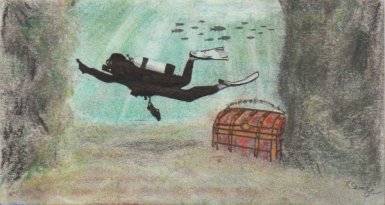Beating a Sunk Horse
 [drum roll]
[drum roll]
Here are what I believe are fairly definitive answers to the sunk cost quiz questions. But of course feel free to take issue in the comments.
SCENE: You have a non-refundable flight but now the opportunity to road trip with some friends to your destination has come up. Which of the following are rational and which are irrational:
1. “I might do that much driving to save the flight costs but since the flight is paid for I’d rather take it.”
Rational. Calling this irrational I claim is hyper-correcting for the sunk cost fallacy. Ignoring the sunk cost of the flight means treating it as a now free flight. If you only would’ve driven to save money and otherwise would’ve flown then you should indeed use the flight.
2. “That flight was so expensive that I had to forgo another part of my vacation, so not using the flight is not really an option.”
I meant the answer to be “irrational” — classic sunk cost fallacy — but a few astute readers pointed out that this fits one of the exceptions to the fallacy: budget constraints. If you spent so much on the flight that you literally can’t afford gas money then driving could very well no longer be an option. This is dangerous reasoning though. Be careful that you’re reasoning only in terms of how much money you have left, not how much you spent.
So unless you called out the possible exception to the fallacy, the right answer is:
Irrational. The flight purchase and the retrenching of the vacation can’t be undone. The only question now is whether you prefer a road trip to a free flight.
3. “I’m willing to blow off the flight if it was cheap enough.”
Irrational. Classic sunk cost fallacy.[1] But thanks to a couple people in the comments for pointing out that this is actually rational if interpreted as “I’m willing to drive if I can still afford to.” In other words, this is the budget constraint exception again. I think it’s a stretch to interpret that sentence that way though!
4. “I’m going to drive because that’s what I would’ve done if I had considered the driving option in the first place; what’s happened since then is irrelevant.”
Irrational. Many people missed this, and the wording is sneaky.[2] The cost of the flight is irrelevant, but the decision you’re faced with is quite different from before. Before you would’ve preferred the drive to a costly flight. Now the choice is between the drive and a free flight. Your choice could still go either way but to say that your choice when the flight cost money must be the same as your choice now is irrational. Another case of hyper-correction!
5. “I’m going to fly because that’s what I would’ve done even if I had known about the driving option in the first place.”
Rational. This one is actually obvious — until you over-think it. If you already preferred the flight even when it cost money then of course you should still prefer it now that it’s already paid for.
6. “I need to use this flight otherwise I’ll be forced to admit to myself how dumb I was to book it too soon.”
Let me quote Erik Talvitie on this one:
Rational if the person really can avoid feeling dumb by taking the flight. The net utility of the road trip now is actually different than it would have been had it been available in the beginning. It has the added cost of making the person feel dumb. Therefore it is possible that the road trip alone is preferable to a free flight, but the road trip plus feeling dumb is not.
Irrational if (far more likely) the person already feels dumb and that won’t change by taking the flight. Now feeling dumb is just part of the sunk cost so the argument from #2 still applies.
More Examples
Thanks to Paul Jung for pointing out a classic case: When deciding whether to call a bet in poker, never consider how much you’ve put into the pot so far. You’ll often hear a player say “I’m pot-invested so I might as well call.” Paul says, “I love it when players use that term because that means they are subject to the fallacy and there is money to be won.”
Another friend of mine points out that most of us do this with food that we can’t bear to “waste” even though we’re full and eating it is an even bigger waist waste.
Illustration by Kelly Savage.
Footnotes
[1] It occurs to me that I don’t think I’ve ever actually blown off a flight. Suspicious! It could well mean I suffer from the fallacy myself. I suspect this mostly manifests as a failure to even entertain the idea of “wasting” something you paid for.
[2] Thanks to Kevin Lochner for suggesting a cleaner version of the statement: “If I would have driven before buying my ticket, I should still drive now.”
